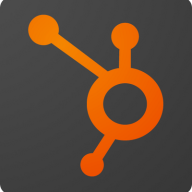

Zoho CRM and HubSpot CRM are both prominent in the CRM category, but they cater to different business needs. Zoho CRM seems to have the upper hand for customization and cost-effectiveness, while HubSpot CRM excels in marketing capabilities and ease of use.
Features: Users value Zoho CRM for its extensive API capabilities, the ease of creating custom fields, and its robust analytics. Zoho seamlessly integrates with other business functions, making it suitable for diverse operational needs. On the other hand, HubSpot CRM is praised for its marketing automation, comprehensive contact management, and integration options. It efficiently tracks deals and provides lead-scoring features useful for sales teams.
Room for Improvement: Zoho CRM needs enhancements in Outlook integration, email campaign tools, and mobile functionality. Some users have highlighted a need for better data organization and smarter automation features. HubSpot could improve with more affordable pricing, better customization options, and more comprehensive features in its mobile app. Its integration with other systems could be more refined and handling duplicates more streamlined.
Ease of Deployment and Customer Service: Both CRMs primarily use public cloud deployment offering accessible management. Zoho's customer service has room for improvement in response time and technical understanding. HubSpot provides efficient support but could enhance its price sensitivity. Zoho is noted for its quick problem resolution, while HubSpot is valued for its accessible online resources and updates.
Pricing and ROI: Zoho CRM provides affordable pricing plans with a noticeable ROI, thanks to its automation features enhancing productivity. It’s particularly cost-effective for SMEs. Meanwhile, HubSpot's competitive free version is attractive to small businesses, but its professional features come at a higher price. Zoho delivers a broad solution for diverse needs, whereas HubSpot's modular purchases offer tailored functionality at cost.
HubSpot's customer service is excellent and fast.
Many users give it only a couple of minutes before moving on, so there should be ways for quick, direct access and follow-up, which is currently somewhat challenging.
There is always an account rep that's available, and there is a technical account rep that is available for every account.
Sometimes, they don't understand what my actual needs are.
The 1.5 deduction from 10 is due to cultural communication differences based on where we're getting the support, as sometimes it takes a couple of times to communicate clearly enough for them to understand the issue.
There are multiple blogs and articles available online for self-help.
Handling around 100 to 150 users is fine.
There are a lot of enterprises using it, however, even as a GTM for HubSpot, their target market is predominantly SMB.
HubSpot CRM is a scalable solution.
The system is easy to understand, implement coding, and conduct training.
Zoho CRM is quite scalable; I have worked with clients who started with ten companies and have scaled up to managing 500 employees effectively within Zoho CRM.
The platform's global data centers across regions such as the US, EU, and India ensure data security and privacy through ISO certification and strong role-based security, which is essential for handling sensitive customer data.
Zoho CRM guarantees 99% uptime, with downtime incidents being very rare.
I find Zoho CRM to be 100% stable and reliable as far as I know.
It is usually compliant with data regulation laws and is HIPAA compliant.
HubSpot should establish some pre-deployable packages that, when contracted, offer basic functionality.
A better CRM can be achieved by providing more customization features.
The response time is slow.
The platform does not save code versions similar to GitHub, where you can compare new versions with previous ones.
Some organizations may prefer not to have their data on the internet since Zoho CRM runs as a cloud service.
The main improvement needed for Zoho CRM is introducing SQL code for reports, similar to what's in Zoho Analytics.
Zoho CRM and all of Zoho's software are quite affordable because they are specifically designed for small and medium businesses.
In terms of my experience with the price and licensing cost, as with setup cost for Zoho CRM, it might not be quite affordable because there are cheaper solutions available.
HubSpot stands out for its ease of use, especially with sequence creation compared to other CRM solutions.
The most valuable feature for me is when I encounter a company or a person, I can drop in their URL, and it pre-populates various details like address information and other contacts they might have.
The feature that I find valuable is the customer 360-degree view and the marketing automation.
The most valuable aspect of CRMs, including Zoho CRM, Salesforce, and Microsoft Dynamics, is automation capabilities.
The most valuable feature I have found in Zoho CRM is custom functions. You can achieve anything with it. From integrations with other applications, it is instant.
You can customize everything—what you sell, be it products, services, or projects.
| Product | Market Share (%) |
|---|---|
| Zoho CRM | 1.5% |
| HubSpot CRM | 1.1% |
| Other | 97.4% |


| Company Size | Count |
|---|---|
| Small Business | 39 |
| Midsize Enterprise | 5 |
| Large Enterprise | 8 |
| Company Size | Count |
|---|---|
| Small Business | 44 |
| Midsize Enterprise | 6 |
| Large Enterprise | 10 |
HubSpot CRM is a comprehensive customer relationship management software that helps businesses manage their sales, marketing, and customer service activities. It offers a wide range of features, including contact management, email tracking, deal tracking, and task management.
With its intuitive interface and easy-to-use tools, HubSpot CRM allows users to streamline their sales processes, track customer interactions, and improve overall productivity. It also integrates seamlessly with other HubSpot products, such as marketing automation and customer service, providing a complete solution for businesses of all sizes.
Whether you're a small startup or a large enterprise, HubSpot CRM can help you organize and grow your customer relationships.
Zoho CRM empowers organizations with a complete customer relationship lifecycle management solution for managing organization-wide Sales, Marketing, Customer Support & Service and Inventory Management.
We monitor all CRM reviews to prevent fraudulent reviews and keep review quality high. We do not post reviews by company employees or direct competitors. We validate each review for authenticity via cross-reference with LinkedIn, and personal follow-up with the reviewer when necessary.